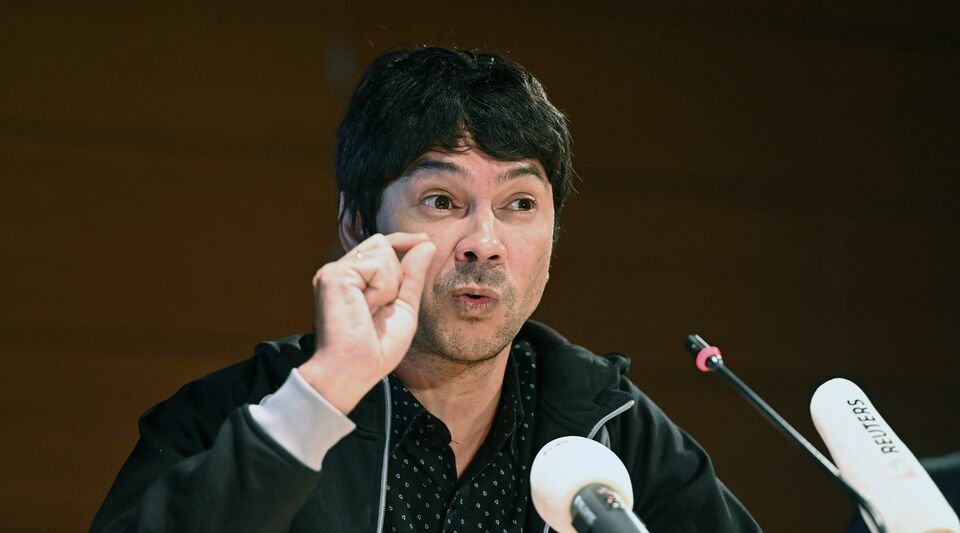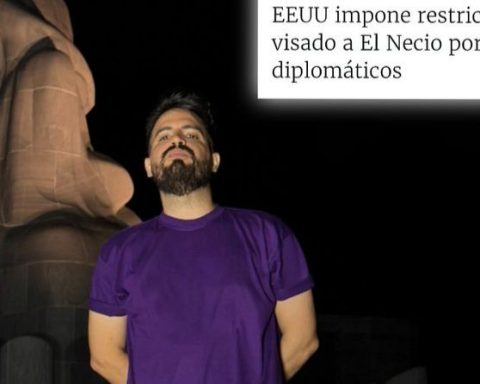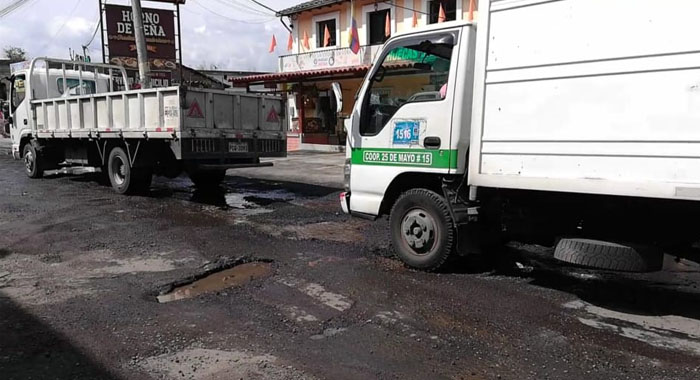The playwright Yunior García Aguilera will request asylum in Spain, where he arrived in mid-November 2021 after leaving the island forced by the siege to which he was subjected by State Security in Cuba. The founder of the Archipiélago platform traveled to Madrid with a tourist visa granted by the Spanish Government, whose duration is 90 days and does not allow travel to another country, but more than two months have passed and the opponent admits having realized that he can’t come back as soon as he hoped, has told the newspaper The country in an interview published this Sunday.
“After my arrival in Madrid, my theater group in Cuba has been closed and the actors have been fired. My works are prohibited. The case against me is still open. They have excuses for, as soon as I set foot in the Havana airport , take me to jail for 27 or 30 years, as they have done with other protesters. Going back now is not a real possibility. It would be suicide,” he says from his new host city.
“They have excuses for, as soon as I set foot in the Havana airport, to take me to jail for 27 or 30 years, as they have done with other protesters. Returning now is not a real possibility.”
García Aguilera told his arrival in Madrid that his intention was to exhaust the duration of the visa, recover mentally and physically from the wear and tear suffered in the weeks prior to the Civic March for Change, of which he was one of the promoters, and return to the Island willing to continue advancing in the demands for freedom for political prisoners and dialogue to initiate a change towards democracy in Cuba.
However, since he left his group Trébol Teatro has been closed and remember that before leaving Cuba, State Security He threatened him with 27 years in prison in the Combinado del Este.
In the interview, García Aguilera talks about how his landing in Madrid’s daily life has been. After an arrival under the spotlight, with spaces in the Spanish news and pages in the newspapers, the playwright has had to start an ordinary life and says that he survives “honestly” thanks to some collaborations with the media and the support of the Cuban exile. As he explains, the coat he was wearing during his conversation with the reporter from The country It has been given to him as a gift and he is willing to work in whatever it takes to maintain the small apartment in which he lives in Lavapiés.
García Aguilera indicates that he must keep some precautions, such as his exact address secret – “State Security has tentacles everywhere” – but he is delighted with his host neighborhood. Less than a kilometer from Puerta del Sol, Lavapiés is an area in which more than 88 nationalities coexist and which, despite the gentrification process that has been going on for a few years, preserves the tradition of the oldest residents of the capital together with the multiculturalism of its new inhabitants.
“On Sundays, the blacks take out the drums and play them. That reminds me of my land,” says the playwright, who emphasizes that he feels very grateful for his current austere life, because he has had the warmth of the Cuban community, which even It has helped him to protect himself from the cold Madrid winter, which these days registers temperatures between 9 and -2 degrees.
“In politics, what is real is what is not seen” to describe the “discreet” work that, he maintains, he has continued to carry out for democracy in Cuba. This links to one of the most unpleasant episodes he has experienced since he arrived in Spain, an act of boycott suffered in the Faculty of Political Sciences of the Complutense University of Madrid when they tried to tell their experiences in a presentation organized by an association of the same Faculty.
The playwright urges people “of good will who dare not call Cuba a dictatorship” to “understand that this romantic vision is doing Cubans a lot of harm.”
García Aguilera attributes the act to “young people from the United Left” (one of the member parties of the United We Can coalition, currently in government) and considers that many of these people preserve the unreal myth of the Cuban Revolution as an ideal of justice and equality . The playwright urges people “of good will who dare not call Cuba a dictatorship” to “understand that this romantic vision is doing Cubans a lot of harm” and asks the international community to abandon its “hypocrisy” and its “lukewarmness” with “that brutal and cruel dictatorship that rips out the hearts of Cubans,” as it has done since the most recent column published in 14ymedio, where he has a fortnightly collaboration.
Despite this bad time, García Aguilera is happy in his new city and confesses that he is happy when he can treat himself to a little treat such as buying a chocolate bar, pork or visiting the bookstores in his neighborhood, always with caution, since some Cuban media They have come to spread images of themselves buying cheap clothes with the aim of painting them “as consumers who are happy eating ham,” he says.
At night, sometimes until 5 in the morning, he speaks with Cuba through video calls with his 10-year-old son, who continues to live in Havana, with the Archipelago moderators and the relatives of the political prisoners.
Although his exile is expected to be longer than initially announced, García Aguilera insists that “he will never give up returning to his country. Being Cuban is a chronic condition that has no cure. I cannot forget that I am a Cuban who wants to return to Cuba.” .
________________________
Collaborate with our work:
The team of 14ymedio is committed to doing serious journalism that reflects the reality of deep Cuba. Thank you for joining us on this long road. We invite you to continue supporting us, but this time becoming a member of our newspaper. Together we can continue transforming journalism in Cuba.

















